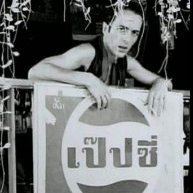Brazil judge reiterates order to release Lula from prison
-
Recently Browsing 0 members
- No registered users viewing this page.
-
Topics
-
-
Popular Contributors
-
-
Latest posts...
-
6,492
-
26
This guy is the US Sec. of Defense
Versus this from Obama. Yeah, advice to Pajama Boys when they go home for the holidays. -
538
Will there ever be a safe vaccine?
'''A virus is considered isolated when: - It is shown to replicate in a cell culture - Its presence is confirmed by: > PCR (detects viral RNA/DNA), > Immunofluorescence (detects specific viral proteins), > Electron microscopy (direct visual confirmation), > Genome sequencing (identifies it by its genetic code).''' This is not isolation to any person with a brain. Call it a series of steps. Or detection procedure. But isolation it is not. The steps to show that a 'virus' exists, and causes effects in a petri dish, should run alongside another that does precisely the same steps, but without the snot. As Dr Enders did in 1954. However, they do not. Why? I'll tell you why Richard Buddy. Because it is mixing the petri soup with chemicals and bio-waste that causes the effects. Can't you see that virology is a load of nonsense? You are easily fooled Richard. But you are not alone. -
77
Economy Trump Confirms 36% Tariff on Thai Goods via Truth Social Post
If we use Thailand as an example numbers of European built cars or American cars are on the roads in limited numbers due to Not many importers willing to import cars to Thailand due to excessive tariffs and taxes and not many customers willing to pay excessive price compared to a similar vehicle with no tariffs and taxes 757,654 new vehicles were exported from the EU to the US in 2024 I would expect that number to decrease with a 32.5% tariff especially for the medium range of cars -
77,636
Worst Joke Ever 2025
Nah, spotted on my way home from the office: - -
55
The Epstein List
One person's view, which is pretty valid, and only those in denial can argue with............https://psyche.co/ideas/the-reality-of-prostitution-is-not-complex-it-is-simple.
-
-
Popular in The Pub






.thumb.jpeg.d2d19a66404642fd9ff62d6262fd153e.jpeg)






Recommended Posts
Create an account or sign in to comment
You need to be a member in order to leave a comment
Create an account
Sign up for a new account in our community. It's easy!
Register a new accountSign in
Already have an account? Sign in here.
Sign In Now